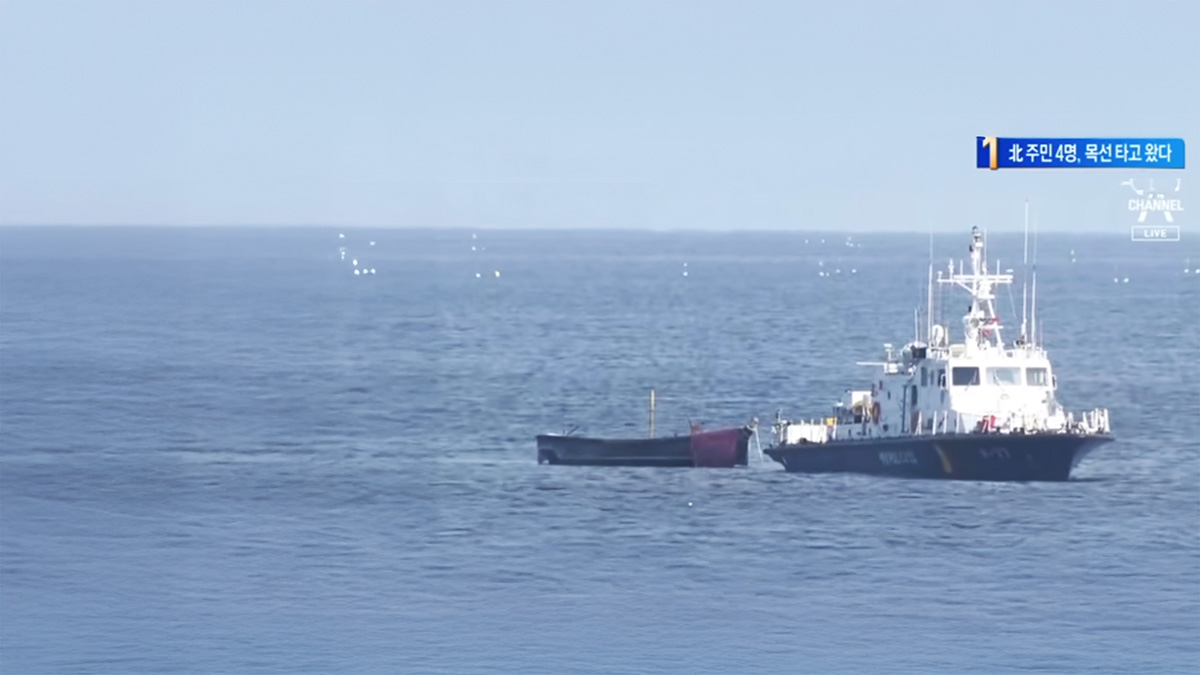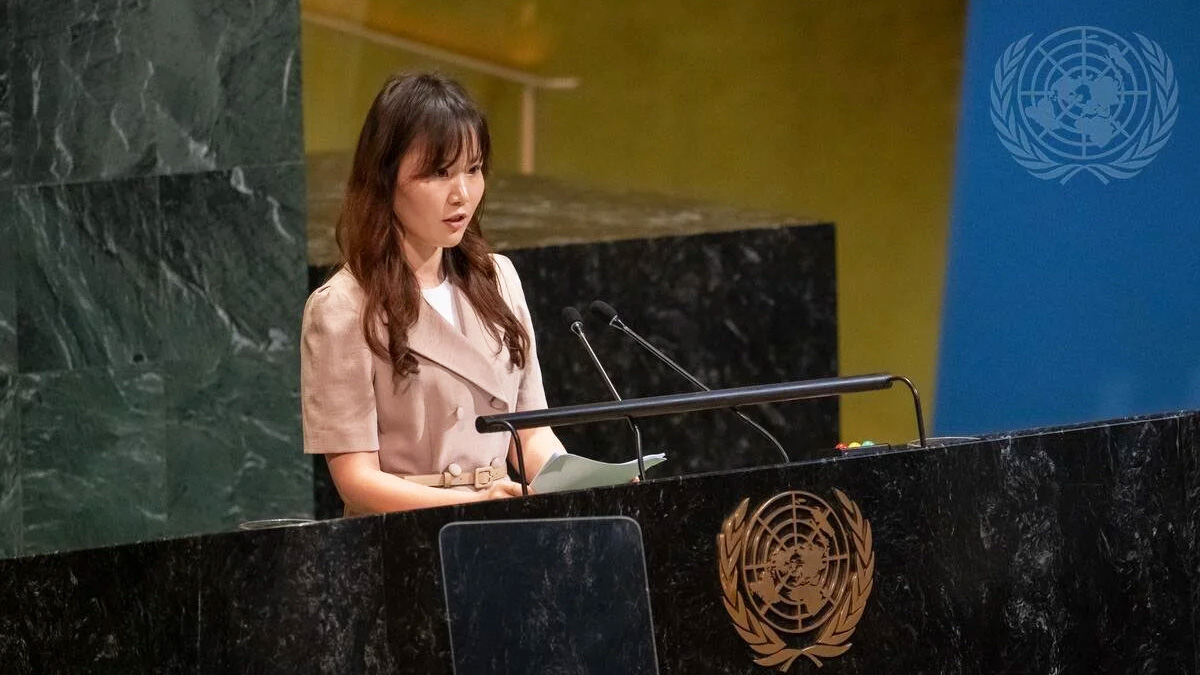The DMZ and North Korea

What Is the DMZ?
The Korean Demilitarized Zone (DMZ) is a strip of land running 160 miles (250km) across the Korean Peninsula that serves as a buffer zone between North Korea and South Korea. It passes just 30 miles north of Seoul but is one of the most heavily guarded borders in the world. It divides the Korean Peninsula approximately in half roughly near the original border at 38°N (the 38th parallel), the line that divided North and South Korea at the end of World War II. The Demilitarized Zone incorporates territory on both sides of the cease-fire line as it existed at the end of the Korean War (1950-1953), and was created by pulling back the respective forces 1.2 miles along each side of the line.
The armistice that ended hostilities was signed here in 1953, but, as an official peace treaty was never signed, the two sides have officially been at war for over seven decades.
A Brief History of the DMZ
With Japan’s surrender to the Allies ending World War II in 1945, Korea gained its independence after 35 years of colonization by Japan. The United States and the Soviet Union agreed to a joint temporary occupation of the Korean Peninsula with the US administering the southern part and the USSR administering the northern part.
The zones were split at the 38th parallel, an arbitrary line on the map chosen because it divided the country roughly in half. The division and international administration was supposed to be temporary until Koreans were considered ready to govern by themselves, but with the onset of the Cold War and growing suspicion between the US and USSR the two sides failed to come to an agreement that could establish a unified Korean government and state.
Instead the Republic of Korea (ROK), supported by the United States, was established in 1948 in the south while the Democratic People’s Republic of Korea, supported by the Soviet Union, was established soon after in the north, with both sides claiming sovereignty over the whole peninsula.
On June 25th, 1950, the new North Korean Army invaded across the 38th parallel in an attempt to quickly reunify the Korean peninsula by force. They nearly succeeded, but US-led international intervention changed the course of the war. The conflict devastated the Korean peninsula for three years and killed three million people. After the conflict reached a stalemate close to the 38th parallel, the Korean Armistice Agreement was signed on July 27th, 1953 between the United Nations Command, North Korea, and China to establish a ceasefire.
Each side agreed to move their troops back 2,000m (1.24 miles) from the front line to create a demilitarized zone, establishing a 2.5 mile wide buffer with established rules of conduct. The Military Demarcation Line (MDL) runs through the middle of the DMZ and indicates where the front was when the agreement was signed.
More than seven decades later, both sides still stand guard on either side of the DMZ, two large armies on constant alert for potential aggression from the other side. The arbitrary division that in 1945 everyone thought would be temporary has ended up with one of the most impermeable borders in human history.
The Security Status at the DMZ
The border between North and South Korea is one of the most heavily guarded stretches of land in the world. The DMZ, littered with scores of mines and barbed-wire fences, is almost impossible to cross, except at the Joint Security Area (JSA). The JSA is a special zone inside what is known as the "truce village" of Panmunjom, about 35 miles north of Seoul. Every year, when it is open to tourists, thousands of people visit the JSA for a chance to see North Korean soldiers standing at attention just dozens of feet away and to officially step into North Korean territory inside a United Nations Command administered conference room that straddles the military border.
A visit there feels like military theater, with stern warnings from the South Korean soldiers under United Nations Command not to make gestures at their counterparts. Since demarcation, the DMZ has had numerous incidents and incursions by both sides, although the North Korean government typically doesn’t acknowledge direct responsibility for any of these incidents.
Human Rights and Repression in North Korea
North Korea is one of the world's most repressive states. The government restricts all civil and political liberties for its citizens, including freedom of expression, assembly, association, and religion. It prohibits all organized political opposition, independent media, civil society, and trade unions. The government routinely uses arbitrary arrest and punishment, torture in custody, forced labor, and executions to maintain fear and control across the country. Beyond the DMZ, North Korea is a highly controlled country where human rights are routinely violated.
The international community has continued to press the North Korean government to expand its engagement with United Nations human rights mechanisms, including action on findings of the UN Commission of Inquiry (COI). The COI report shows that the country has committed crimes against humanity including extermination, murder, enslavement, imprisonment, rape, sexual violence, forced abortion, and other heinous crimes. The citizens of North Korea require a lot of help and support from the international community in order to attain a better life.
The North Korean people face a brutal and repressive government that isolates them from the world and denies their most basic human rights. But you can help to create change. At Liberty in North Korea (LiNK), we help North Korean refugees escape through a 3,000-mile secret rescue route and empower North Koreans who have reached freedom to be changemakers, advocates, and leaders on this issue.
You can help make a difference in the lives of North Korean citizens by learning more about our organization, raising funds, advocating for the people of North Korea, starting a rescue team, or making a donation today!
A North Korean Refugee’s Daring Escape By Boat | Gyuri Kang’s Story
Escaping from inside North Korea remains almost impossible today. Borders remain sealed by the legacy of pandemic-era restrictions, while surveillance in China continues to intensify. But in 2023, a group of North Koreans crossed into South Korean waters on a small fishing boat—a rare and extraordinary way to reach freedom. Abroad the vessel was 22-year-old Gyuri Kang with her mother and aunt.

You were never supposed to know my name, see my face, or hear my story. Because I was one of 26 million lives hidden inside North Korea.
I was born in the North Korean capital, Pyongyang. The first time the government decided my future without my consent, I was only a child. My family was exiled to a rural fishing village because of my grandmother’s religion.
In the system we were living in, not even your beliefs or thoughts are truly your own.
On my way to school, youth league officers would inspect my clothes and belongings, punishing me for even a hairpin or a skirt that was a few centimeters too short. At school, we were taught that “we live in the most dignified nation in the world,” but outside those walls, people were collapsing from hunger in the streets.
Careless words overheard by a neighbor could turn into a knock at the door in the middle of the night. The radio played government broadcasts all day long, and searching other frequencies was a risk no one dared to take. This is how the North Korean government maintains control over people. By convincing you that survival depends on submission.

I returned to Pyongyang as an adult. I majored in table tennis at the Pyongyang University of Physical Education and imagined myself making a new life, built on talent and hard work.
But reality was nothing like what I had dreamed. I came to understand a deep, painful truth: In the end, everything was determined by how well you obeyed, not how hard you worked.
Frustration and emptiness built up until I finally decided to leave Pyongyang.
I wanted to help support my mother and aunt, so I moved to the coast to try and build a life of my own. My mother used all of her hard-earned life savings to buy me a small wooden fishing boat so I could start a business harvesting clams.
That boat was more than a way to make a living. It was a daily reminder of her sacrifice, and the depth of their love and trust in me. If the money I earned with my own hands could put even one less wrinkle on her forehead, that was enough for me.

As a boatowner, I woke up early in the mornings to prepare supplies, get the crew together, and encourage them. I inspected the condition of the boat and hired people to help fix the engine and other faulty parts. Although I couldn’t go out to sea because I’m a woman, I was responsible for ensuring the ship operated smoothly.
But the harder I worked, the more government officials came to me—demanding baskets of clams and money. They justified their demands by saying: “The Party orders it,” threatening to punish anyone who refused. Every night I agonized over how to protect my people and keep my business going, and how I should respond. In those moments, I would remember the love and devotion my mother and aunt had poured into me and it gave me strength to persevere.
To escape my reality, at night I secretly watched South Korean TV shows on a television that was smuggled in from China.
My world turned upside down. With my friends who were also watching South Korean media, we would cautiously express our dissatisfaction together while also copying the hairstyles and outfits we saw in dramas. Sometimes, we would even try to mimic South Korean words or accents when talking or texting together.
But under Kim Jong Un, punishments became much more severe. Two people I knew were executed for watching and sharing foreign media. Our lives became harder, control over young people became more intense, and our resentment began to grow.

But no matter how much they tried to repress us, frustrated young people like me continued watching forbidden content as a way to forget reality. Foreign media has quietly found its way into North Korea for decades. As I grew up, it began spreading more than ever before, through USBs passed between friends or broadcasts picked up on illegal devices.
Many defectors, like me, can remember the exact episode of a TV show, a specific South Korean song, or even a traffic report, that planted the first seeds of doubt.
Of course, dramas and movies don’t tell the whole story, but they show a life that contradicts everything we were taught. And it makes you wonder: if life is so different out there, why does it have to be this way here?
I realized it doesn’t just show people that different lives exist. It gives them the belief that their life could be different. And that belief gives people the courage to choose a different future.
The thing about information is once you learn something, you cannot unlearn it. I remember watching people on my screen speak freely, laugh openly, and pursue their dreams—things that were unimaginable in North Korea. For the first time, I wondered if everything we were taught might be wrong. That doubt led to questions, and my curiosity became too strong to ignore. Now that I had seen the truth, I could never go back to the person I was before.

Escaping North Korea cannot be explained by the simple word “leaving.” This was especially true for me because I escaped together with my mom and my aunt. They had placed their trust in me when they gave me money for that boat. And now I was placing my trust in that boat to carry us across the sea to freedom.
I planned our escape in complete secrecy.
I bought a smuggled GPS device from China, carefully traced our route, observed the currents and tides, learned the patrol schedules of the guard boats, and figured out the blind spots of the coastal guard posts. I meticulously checked the condition of the boat and quietly prepared all the food and supplies we would need. I trained my body for the wind and the waves, and my mind for the terror of being caught.
Some nights I woke up in a panic. Other times my confidence crumbled and I thought, maybe I should give up and just accept the life I have. But in those moments, I imagined what waited at the end of the journey.
I wasn’t leaving just to stay alive. I was leaving so that I could live like a human being.
On the night we left, we climbed into my boat and pushed off into the dark water. I gripped the rudder and let the current carry us south, carefully navigating around the guard posts and patrol boats who were on the water looking for people like us.

I knew what would happen if we were caught. Arrest. Endless investigations. Humiliation. Public trials. Political prison camp. And the possibility that I might lose the people I loved most in the world.
My mother and aunt were trembling with fear. I had to hide my own fear to tell them what I could only hope. We will survive. We spent the night being tossed back and forth on the East Sea. Black waves lifted our boat like a toy before smashing it down again. Every crash sent water over the sides and threatened to swallow us up.
Suddenly, a patrol ship appeared. Its lights stabbed the water, blinding us, and started coming closer and closer. It was coming for us. My chest pounded so hard I felt it might burst. I thought of the sleeping pills we had brought.
We had agreed that if capture became inevitable, we would rather take our own lives. It was a fate we preferred to execution or prison camps. As the coast guard closed in, I wondered, is it time for the pills?
But I refused to give in. We were so close. I steered away from the searchlights, surrendered the boat to the churning water, and pushed on forward.
Suddenly, the patrol vessel stopped and turned back around. They could no longer chase us. We had reached the maritime border. The sea calmed, as if it was welcoming us to freedom. And as the sun rose, we saw the outline of land.
A South Korean fisherman, hearing radio reports that North Korean patrols were in pursuit, realized we were the boat being chased. He steered his boat toward us and said, "Welcome. You are safe now."

It’s been almost two years since we arrived in South Korea.
I still remember moving into our apartment and using a showerhead for the first time, experiencing hot water flowing straight from the tap. I couldn’t believe it. That day, my mother, my aunt and I took turns showering, laughing, and saying to each other, “So this is what a human life feels like.”
For the first time in my life, I could choose my studies, my job, my clothes, my hobbies—even the way I spoke—for myself. It felt like an entirely new world. We were being reborn, leaving behind a past of silence and control for a life with dignity and a future we could choose ourselves.
My mother began studying for a professional certification. And my aunt enrolled in social welfare classes to help others. I studied hard and was recently accepted into Ewha University. I have also been active in North Korean human rights activism and I even started a YouTube channel to show the world what it looks like to start a new life in South Korea.

Hope is dangerous for the North Korean government. Millions of people live with anger and sadness, but even more live in resignation. Most do not realize their rights are being violated—they don’t know what “rights” are. I once believed it was normal for the state to control every part of our lives. I thought every country lived this way.
But the moment you realize life could be different, hope begins to take root. And once hope exists, change is no longer unimaginable.
My dream is that someday North Korea will be a place where young people choose their own paths, where no one is punished for their words, and where every person lives as the true owner of their life. While so much of North Korea’s reality is dark, change is already happening. And what sparks that change is information. A single truth from the outside world, a glimpse of what life could be, can plant a seed of doubt, or ignite a spark of hope.
That’s why I speak out. If I don’t tell my story, who will tell it for me? If I stay silent, will the death of my friends, and the suffering and starvation my family endured be forgotten?
Right now, in North Korea, there is someone just like me—sitting in a dark room, secretly watching a South Korean broadcast, quietly wondering: Could I also live like that?
I want my story to prove that this hope can become a reality. I want to stand in the middle of that change. Not just as someone who escaped to enjoy freedom, but as someone determined to one day share that freedom with all North Korean people.
Freedom is not given, but it is something we can achieve. With your support, we can write a future where all North Korean people are free.
Foreign media gave Gyuri a glimpse of the outside world—and the courage to seek freedom.
Increasing North Korean people’s access to outside information is one of the most effective levers for change in the country. And that is exactly what we’re doing at Liberty in North Korea
In partnership with North Korean defectors and engineers, LiNK develops tailor-made technology, tools, and content that help people inside the country access more information more safely. These glimpses into the wider world build people’s resilience to the regime’s propaganda, and emboldens them to imagine a different future for themselves and their country.
Help fuel work that’s directly supporting North Koreans driving change on the inside.




